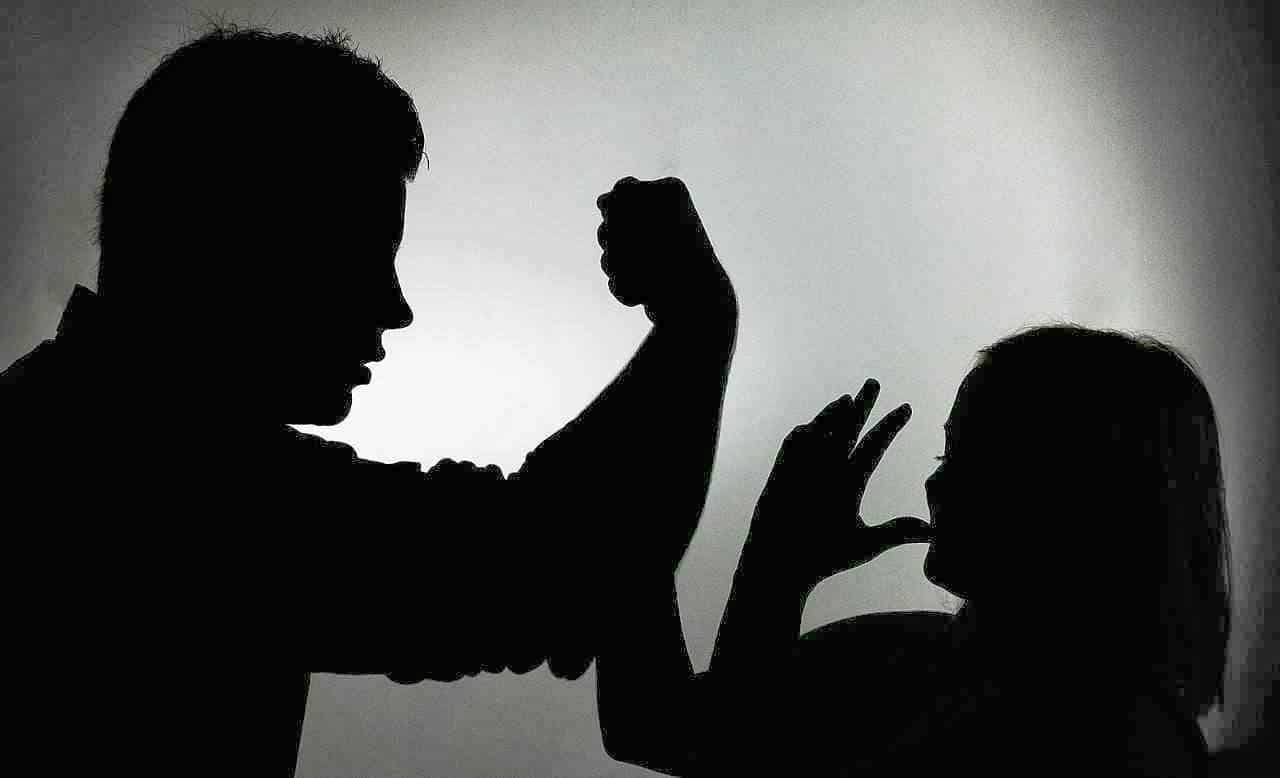BY VICTOR AKHIDENOR
Latin America gave the English-speaking world the word ‘machismo’. Machismo refers to strong or aggressive masculine pride and implies an abusive attitude towards women. But the word is by no means confined to men in Latin American countries like Mexico, the Caribbean, and most Central and South America.
Seven thousand, one hundred and sixty-four kilometres away from Brazil, some men in Nigeria still bask in exaggerated pride of masculinity which they perceive as power often coupled with a minimal sense of responsibility and disregard of consequences.
Violence against women according to the United Nations is “any act of gender-based violence that results in, or is likely to result in, physical, sexual or mental harm or suffering to women, including threats of such acts, coercion or arbitrary deprivation of liberty, whether occurring in public or private life”.
Advertisement
This violence includes, among other things, “physical, sexual, and psychological violence occurring in the family and the general community, including battering, sexual abuse of female children, dowry-related violence, marital rape, female genital mutilation and other traditional practices harmful to women”.
Violence against women is increasing by the day and it is sad many women live with a constant fear of attack in the one place they should feel the safest – their own home. More and more of them are maimed, beaten, or killed because they are female than for any religious or political belief they may hold. In domestic violence, like in machismo, there is a supreme valuation of characteristics culturally associated with the masculine and denigration of characteristics associated with the feminine.
In Nigeria, a study, which was later published into a book (Beyond Boundaries – Violence Against Women in Nigeria) in 2001 sampled Women in Workplaces (550), Market Women (522), Young Women in Schools (658), Social Welfare Officers (165), Medical doctors (147), and Police officers (278) to establish the prevalence and spread of violence against women in the country. The respondents were from 12 states (Lagos, Ogun, Oyo, Rivers, Abia, Enugu, Cross Rivers, Adamawa, Plateau, Kaduna, Edo, and Kano) of the federation.
Advertisement
When broken into zones, the study revealed the following:
Women in Workplaces in the North-East and North-Central admitted that they have been beaten, slapped, or kicked by their boyfriends or husbands (58.3 per cent and 57.4 per cent respectively). In the South-East it was 39.3 per cent; South-South was 32.9 per cent, and the lowest was from South-West (31.2 per cent). All the respondents said the incident happened in the last one year: North-Central (34 per cent), North-East (25 per cent), South-West (17 per cent), South-East (16.7 per cent), South-South (16.4 per cent), and North-West (12.2 per cent). Financial problems accounted for the reason why the respondents were beaten, slapped, or kicked in four out of the six zones. North-Central (12.8 per cent), South-South (7.1 per cent), South-East (4.8 per cent), and South-West (2.8 per cent). It was only in the North-West (5.6 per cent) that husbands/boyfriends beat, slapped, or kicked respondents because they were drunk. Also, the South-East was the only zone where respondents were beaten, slapped, or kicked because they were disrespectful to either the man or members of his family. In the North-East (27.1 per cent) and the South-West (9.2 per cent), the respondents were beaten, slapped, or kicked because they denied their husbands/boyfriends sex.
In the study, the Young Women in Schools confirmed that they sustained injuries when their boyfriends beat them (South-South 31 per cent, North-Central 10.5 per cent, North-West 7 per cent, South-West 4.6 per cent). The respondents admitted having been raped (South-East 18 per cent, North-East 17.8 per cent, North-Central 14 per cent, South-South 9.7 per cent, North-West 7.8 per cent, and South-West 5.7 per cent). Such rape cases were by boyfriends (North-Central 7 per cent, South-east 6.3 per cent, South-West 2.9 per cent, and South-South 1.9 per cent); by classmates (North-West 1.7 per cent, South-South 1.9 per cent, and South-West 0.6 per cent); by schoolmates (North-West 3.5 per cent and South-South 1.9 per cent), and by cult members (South-East 1.8 per cent).
The Market Women in the South-South (44.5 per cent), North-East (38 per cent), South-West (37.2 per cent), South-East (34.7 per cent), North-West (30 per cent), and North-Central (26 per cent) admitted they were beaten by their partners. Various reasons were given by the respondents for the physical assaults they suffered from their partners. Financial problems accounted for 21 per cent of the battery in the South-South. Figures for the other zones were: North-East (16 per cent), South-west (9 per cent), North-West (8.3 per cent), and South-East (5.1 per cent). Drunkenness by their partners had: 41 per cent in the South-West, 8.2 per cent in the South-East, 8 per cent in the North-East, and 6.7 per cent in the North-West. Coming home late was 19.3 per cent in the South-South, 16.6 per cent in the South-West, 10 per cent in the North-West, and 5.1 per cent in the South-East. Denial of sex to partners had its fair share in the North-East (14 per cent), the South-West (12.4 per cent), and South-East (12.2 per cent). It was only in the North-Central that respondents in this category admitted they were beaten for being disrespectful to either their spouses or members of their families.
Advertisement
I need to quickly dispel some misconceptions.
Battered wives are responsible for their husband’s actions. Nothing could be further from the truth than this statement. Perpetrators do not own up to their actions, claiming that their wives provoke them. Ironically, some friends of the family buy into the idea that the wife is difficult to deal with, so it is not unexpected that her husband loses control occasionally. No matter how it is painted, this only amount to blaming the victim and justifying the aggressor.
Another misconception worth correcting is that alcohol causes a man to beat his wife. There is no doubt that some men are more violent when they have been drinking but blaming the alcohol for the misbehaviour is unreasonable. K.J. Wilson explains it better in her book When Violence Begins at Home.
“Being intoxicated gives the batterer something to blame, other than himself, for his behaviour. It appears that in our society domestic violence is more comprehensible when inflicted by a person who is intoxicated. An abused woman can avoid seeing her partner as abusive, instead of thinking of him as a heavy drinker or an alcoholic,” she said.
However, such thinking, according to the author, can give a woman the false hope that “if the man would only stop drinking, the violence would cease.” It will not.
Batterers are violent with everyone is yet another misconception. Batterers put on what can be called the Jekyll-and-Hyde personalities. As Jekyll, he is a delightful friend to people but as Hyde, he becomes mysterious and violent. Therefore, friends of the family may find the tales of his violence unbelievable. But the wife-beater chooses to be a Hyde than a Jekyll to his wife just to dominate and brutalise her.
Advertisement
This brutality always fascinates me. He beats her, then he apologises profusely and promises never to do it again. His conduct improves (at least for a while) then the beating starts all over. So, what drives a man to be cruel to the woman he claims to love?
Questioning this nonsense that is domestic violence is not a nonsense question. The answer, however, lies with the men.
Advertisement
I strongly believe that the path to zero violence against women and girls start at the doorway of men. But can violent men change their behaviour? Some have. Usually, however, a batterer will not change unless he admits that his conduct is improper and shameful; wants to change his course and seeks help.
Help has come.
Launched in 2017, Spotlight Initiative has demonstrated a significant, concerted, and comprehensive investment in gender equality from the perspective of women without alienating the men. Among other things, the organisation conducts training aimed at engaging men on the issues of gender-based violence and sexual and reproductive health. It empowers men to become a force for change within their families and communities.
Advertisement
Through working closely with the local councils, police, and community activists, male action mentors address violence by supporting communities to report, manage, and refer cases of gender-based violence. They also involve in calling out the attitudes that perpetuate harmful behaviour.
The new machismo is born. The machismo that refers to strong but not aggressive masculine pride and does not imply an abusive attitude towards women.
Advertisement




